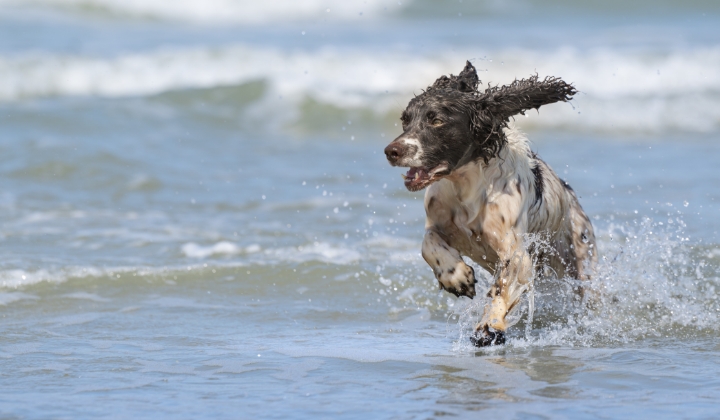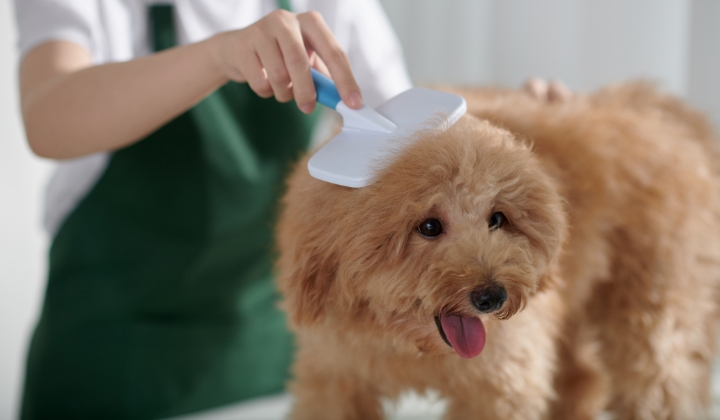How to protect your dog from skin irritations and much more
In the warmer months, nature is blooming and our furry friends love to explore and roll around in the long grass. There’s always a chance to find a lost ball or great stick. But there is also a good chance they will pick up grass seed in their paws, get it caught in their fur – or even end up with it down their ear - and that can be a problem.
You might not think it, but tiny grass seeds can cause huge distress for dogs and their parents. These grass seeds have sharp barbs and needle points that can lead to painful skin infections and abscesses. Worse still, if the barb gets into the bloodstream, it can travel anywhere in the body with dangerous consequences.
Bailey the German Shepherd’s story “It was such a terribly innocent thing, just a normal walk”
Bailey the German Shephard loves her regular bush walks on the North Shore of Auckland. She gets to explore every nook and cranny along the trail and of course, there is lots of long grass that she likes to play in.
Carolina, Bailey’s human, said of that day, “It was such a terribly innocent thing, just a normal walk. Not an accident or an illness, just one of those things that you don’t even think about in a normal dog’s life.”
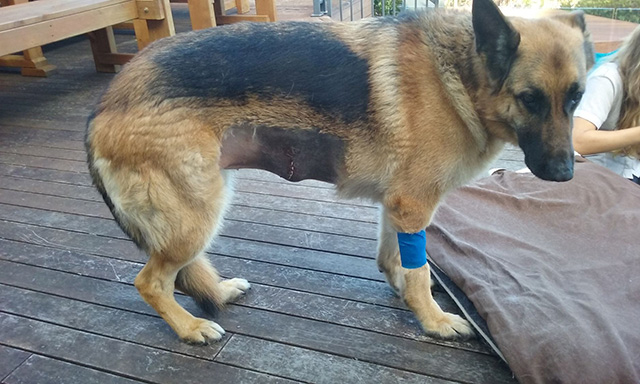
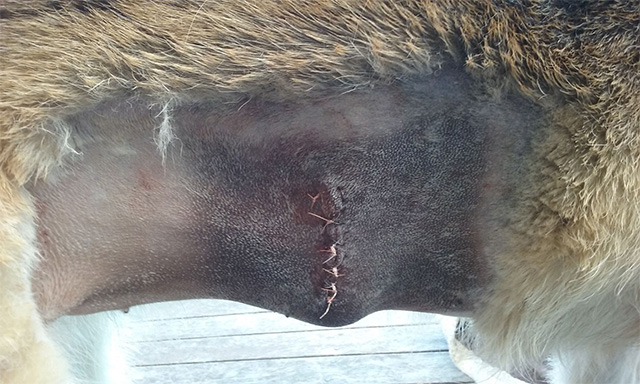
When Bailey became distressed and sore they immediately took her to the vet. The good news for Bailey and her family was that they had pet insurance and they could act quickly when their veterinarian told them grass seed barbs had entered her bloodstream and they would need to operate immediately.
Poor Bailey had to have a second operation before they could find all of the grass seeds. If they didn’t have insurance it would have cost them over $3,000 – just from a normal day on a normal walk.
Dash the Dachshund’s story – hunting for mice in long grass ends up a painful experience
Originally bred as hunting dogs, Dachshunds have a keen sense of smell and love nothing better to follow beguiling scent trails. Dash is no exception, and loves snuffling around in long grass hunting mice on his regular walks in Auckland’s One Tree Hill.
Unfortunately for Dash, his Easter weekend hunting fun meant his dog parent Sarah woke up the following morning to find a golf ball-sized lump on Dash’s neck. Their usual vet was closed for the long weekend, and they needed to go straight to the emergency vet. The lump was opened and flushed out but nothing was found, so Dash went home with some antibiotics.

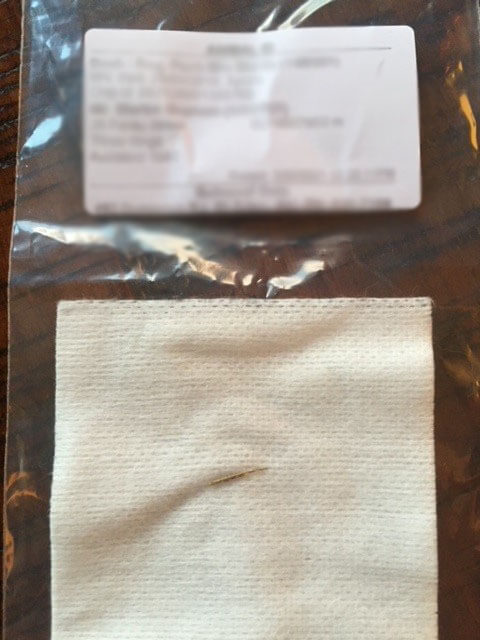
However, the following weekend the lump came back, and as it was ANZAC weekend this time, they went back to the emergency vet. The vet was swamped with holiday cases and there was no opportunity to have surgery, so with no immediate signs of danger, Dash was sent home and advised to follow up with their regular vet. However, overnight, the abscess burst and Dash was rushed in for emergency surgery. Thankfully, this time the grass seed was found and Dash was able to fully recover, although it took about a month to get back to his usual self.
If it wasn’t for pet insurance, all those back-and-forth trips to the emergency vet would have cost over $2,500. Sarah was hugely relieved. “It was a very expensive experience, even with insurance, and we’ve been very careful to avoid long grass since!”
Grass seed injuries: what to look out for
Long-haired dog breeds are more susceptible to picking up grass seed barbs on their fur. But all dogs – and even cats – can get grass seed injuries.
The first precaution you can take is to keep your pet on a lead around long grass. Checking for seeds when you get home, particularly around the pads of your dog’s feet, ears and armpits will help you find those barbs before they can create a problem.
To reduce the chance of seeds getting attached to your pet’s fur, it’s a good idea to keep their hair short around their paws and tummy so a bit of summer grooming can help.
Signs your pet could be in grass seed discomfort
- Hair matting
- Swelling
- Inflammation
- Excessive scratching and rubbing
- Head shaking
- Limping
- Discharge from the eyes or nose
- Persistent licking
Your fur baby will tell you if something is not quite right. So, regular checks after a walk a little bit of caution will help you find those barbs before they can create a problem.
Our little buddies are always going to get up to mischief and stick their noses in places they shouldn’t but after that stroll in the park give their fur a once over when you get back home to make sure there are no hangers-on crashing your party.


